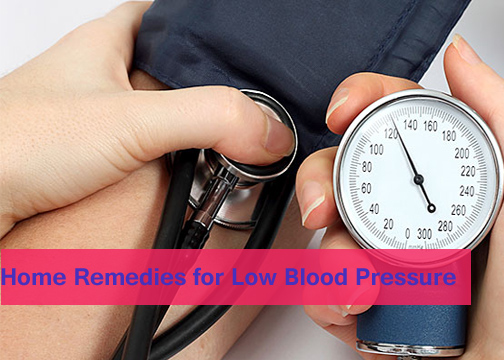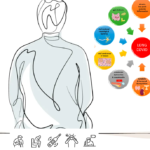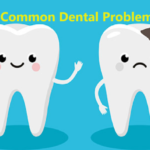3 Easy healthy eating tips to lessen inflammation
Chronic inflammation affects millions of individuals worldwide and has been related to osteoarthritis, some autoimmune illnesses, heart disease, cancer, and Alzheimer’s disease. Inflammation is the body’s attempt to protect itself against infection, disease, or damage. However, excessive inflammation causes your immune system to turn on itself, progressively damaging healthy cells, tissues, and organs. This raises your chances of developing serious illnesses including diabetes, heart disease, fatty liver disease, and cancer.
While certain foods cause inflammation and raise your risk of a variety of hazardous conditions, others can help reduce inflammation. Anti-inflammatory foods include but are not limited to fruits, vegetables, and fatty fish. In this post, we’ll go over three basic healthy eating tips to help you remain safe and reduce or prevent chronic inflammation, including an explanation of inflammatory and anti-inflammatory foods, their downsides and benefits, and how to adopt the best diets into your life.

What is inflammation?
Simply put, when your body identifies anything foreign, such as an invading bacterium, plant pollen, or chemical substance, it activates your immune system and initiates a process known as inflammation. Occasional bursts of inflammation against genuinely dangerous invaders preserve your physical well-being.
However, inflammation can persist day after day, even when no foreign incursions endanger your health. That’s when inflammation may act against you. Chronic inflammation has been linked to a variety of major disorders, including cancer, heart disease, diabetes, arthritis, depression, and Alzheimer’s.
Why would I need to eat anti-inflammatory foods?
Many individuals these days are researching anti-inflammatory diets and for good reasons. Doctors have begun to recognize that the greatest strategy to combat chronic inflammation can be found not in a drugstore, but in a supermarket. Choosing the correct meals and drinks will significantly reduce your risk of developing numerous ailments. On the other hand, if you choose the incorrect ones, you are doing yourself a great disservice.
What are inflammatory foods?
Inflammatory foods are well acknowledged to be detrimental to human health since they not only induce inflammation but also have additional negative and potentially long-term consequences. Inflammation is a major underlying factor in the development of many illnesses.
For example, some of the foods associated with an increased risk for type 2 diabetes and heart disease are also associated with excess inflammation. Unhealthy meals can promote weight gain, which is a risk factor for inflammation. This is not to say, however, that inflammation and an increased caloric intake through unhealthy foods are always interconnected. They can have independent effects on the human body.
The following are some of the foods that cause inflammation, so try to avoid these as much as possible:
- Trans fats and alcohol
- Fried foods such as French fries
- Red meat such as burgers, steaks
- Sugary beverages such as soda and fruit juices
- Refined carbs including white bread and white pasta
- Deserts such as cookies, candy, cake, and ice cream
- Processed meats like hot dogs, sausages, and bologna
- Processed seed and vegetable oils like soybean and corn oil
What are anti-inflammatory foods?
An anti-inflammatory diet is primarily built on full, nutrient-dense foods rich in antioxidants. These reduce free radicals, which are reactive chemicals that can cause inflammation if not controlled.
Anti-inflammatory foods include but are not limited to the following:
- Tomatoes
- Healthy fats such as avocado oil and olive oil
- Vegetables (especially green leafy vegetables) high in natural antioxidants and polyphenols, such as spinach, broccoli, kale, bell peppers, collards, Brussels sprouts, cabbage, and cauliflower
- Nuts such as almonds and walnuts
- Green tea, red wine, parsley and ginger green juice, matcha tea, and adequate water
- Fatty fish include salmon, mackerel, herring, tuna, sardines, and anchovies
- Fruits such as apples, blueberries, strawberries, cherries, oranges, pomegranates, grapes, avocados, olives, and cherries
- Spices such as turmeric, fenugreek, and cinnamon
A favorite beverage of many people, coffee may also protect against inflammation due to its high polyphenol content and other anti-inflammatory properties.
You can add these items deliberately into your diet or follow a popular and nutritious diet like others. A proper anti-inflammatory diet should include a healthy balance of protein, carbohydrates, and fat at each meal. Make sure to satisfy your body’s requirements for micronutrients, fiber, and water.
The Mediterranean diet, for example, is heavy in fruits, vegetables, nuts, whole grains, seafood, and healthy oils, which are all essential for good health. Some studies demonstrate that a low-carb or vegetarian diet can lower inflammatory markers.
As a bonus, just as inflammatory foods are typically harmful to our health because they increase inflammation, anti-inflammatory foods are generally excellent for our health. A more natural, less processed diet can have a significant impact on your physical and mental health. As we all know, a healthy diet not only lowers the risk of chronic diseases but also improves mood and general quality of life.
In addition to lowering inflammation, an anti-inflammatory diet may give the following benefits:
- Increased energy and mood
- Reduced risk of obesity, heart disease, diabetes, depression, cancer, and other illnesses
- Reduce inflammatory indicators in your blood and improve blood sugar, cholesterol, and triglyceride levels.
- Improved symptoms of arthritis, inflammatory bowel disease, lupus, and other autoimmune illnesses.
Conclusion
To reduce inflammation, it is advisable to start with your refrigerator rather than a drugstore. Healthy diets enhance many elements of your life while also lowering your risk of developing various diseases. In addition to the previously mentioned healthy eating tips, there are further protective measures you may take to reduce inflammation. You should get enough sleep, exercise frequently, quit smoking and drinking alcohol, and practice meditation to reduce stress. There are also supplements you can take but you should see your doctor first to avoid any potential bad interactions with other drugs.
References
Foods that fight inflammation by Harvard Health Publishing
What is an Anti-Inflammatory Diet and How to Follow it by Healthline
Healthy Eating Tips to Ease Chronic Inflammation by Johns Hopkins Medicine
Tags: how to lessen inflammation in the body naturally,foods that lessen inflammation , how to lessen inflammation after workout , how to lessen inflammation on face , best oil to lessen inflammation,lessen inflammation,how to lessen inflammation in body,foods to lessen inflammation,how to lessen inflammation,how to lessen inflammation in the body














